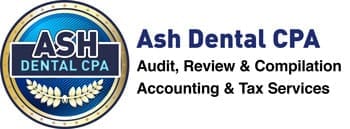Why You Should Consult With a Tax Advisor That Specializes in Dental Practices

Tax Advisor for Dentists
Tax Advisor for Dentists | In short, from business structure to tax filing, and from accounting to operational costs, you’ll need advice from a tax specialist. General tax advisors are competent enough to advise you on reducing the tax liability. Their focus will be on cost reductions. A tax advisor that specializes in dental practices will offer a tailor-made tax plan for your business.
Tax advisors for dentists know the dentistry practices inside out. Accelerated industry trends like telemedicine and remote working have affected the industry practice. In a dynamically changing business environment, you should consult with a tax advisor that understands the challenges of the industry.
Industry knowledge with Tax Proficiency
You will certainly prefer talking to a tax advisor that inherently understands the dental practices. Each industry has certain tax regulations that pass on different tax treatments. The service sector in general, and dental practices particularly, offer labor-intensive costs. The revenue streams from a dental practice are different from a commercial business. Partnering with a tax advisor for a dentist will bring the added advantage of embedded understanding for dental practices.
A tax advisor for dentists will offer a forward-looking tax plan that will focus on service offerings and customer experience. You’ll strategize the business revenue model through customer focus and operational efficiency. A competitive yet profitable service charge model that can maximize profitability.
Industry leaders in healthcare and dentistry are reforming their business models. The changing business environment has compelled every business to adapt to these changes. Technological shift, new customer behaviors, and changing tax regulations mean you should focus on adapting to the industry trends. Meeting these challenging tasks would require meeting new taxation challenges as well.
Partner with tax advisors that enable your business to become forward-looking.
Customized Tax Planning
Industry, business size, cost-revenue model, and changes in tax regulations are all key factors in formulating a tax plan. This means there is no one-fits-all approach that you can apply across businesses for tax advisory. This is another distinction that you’ll get from a specialist tax advisor in dentistry than a general tax accountant.
Customization in tax advisory also means a tax plan that is practical and achievable. Following industry trends and adapting implies scaling the trends to fit in with your business needs.
Dental offices in different locations and business size face different challenges. For example, the rate of returning customers after the Coronavirus scars will be different in dental practices than in other healthcare sectors. A prominent tax advisor must realize that fact. The revenue streams for the next few months will remain slower for dental practices. Thus, the tax advisors must proactively plan for taxation that minimizes the liability.
Why Do You Need A Tax Advisor For Dentists?
A tax accountant would advise you to minimize the costs and increase the revenue streams. Whereas, a specialist tax advisor will tell you how to do it. For example, most reductions in the service industry like dental offices are never easy. Similarly, you’ll need expert advice at every stage of the business activities.
Partnering with a tax advisor in your industry will allow you to gain valuable insights into the industry benchmarks. Your tax advisor will be in a position to recommend industry benchmark practices. Moreover, you’ll make updated and informed decisions on the changing trends in services, technological changes, and tax policies.
Every business owner considers outsourcing tax consultation services. Some key reasons as dental practices to consider partnering with a tax advisor can be:
- Access to industry-specific tax advisory services
- Focus on business operations and growth strategy
- Compliance with regulatory changes and tax laws
- Consultation on industry best practices
- Formulation of cost-effective operational plans
- Auditing and assurance to comply with laws
- Accuracy in recordkeeping
- Financial planning
When You Should Consult With a Tax Advisor for Dentists
Practically you’ll need to consult a tax advisor even before you commence business operations. Also, successful tax planning must begin before the inception of your practice. Right entity structure and accounting practices will affect the Cashflows. That inevitably will change your tax liability.
In addition, you should consult a tax advisor for dentists for advice on operational efficiency. Preparing tax returns with qualified exemptions and tax credits will lower the tax liability. Debt financing and equipment leasing are other important decisions where you should seek expert advice.
Furthermore, there are certain tax implications with a business acquisition, merger, and closing the practice as well. Divestments and closing a business practice also incur tax implications. Thus, you’ll need expert tax advice at any stage of your dental practice.
Contact Ash Dental CPA for a complimentary consultation. New clients are welcome. Call (508) 458-6789.
